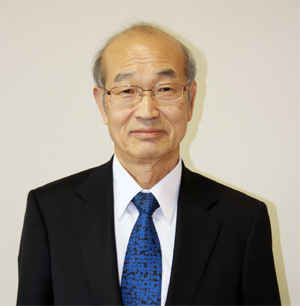It's been a while since I held a seminar for undergraduate students. It's a so-called special seminar for students who passed the scholarship exam, which started for students entering this academic year. This special seminar is interdisciplinary and eight students (five males and three females) registered.
The concept of this seminar is to develop the ability to think for oneself about how various current social phenomena can be interpreted from an economic perspective (using basic economic tools), and what problems cannot be solved by economics, in other words, a sense of economic thinking (borrowed from Otake Fumio's "The Sense of Economic Thinking").
In the seminar, in order to broaden the students' horizons and to encourage them to take an interest in the world, I required them to read a newspaper that features a list every day, cut out three articles that they found interesting from their newspaper readings for a week, and report on each article with a short comment about why they were interested in it, what they understood and what they did not understand. Not only that, I also give each student a theme and have them give a presentation in the seminar on their thoughts on it.
By the way, the first theme is as follows.
Ten years ago, the huge hurricane Charley hit Florida, causing devastating damage. This caused home repair costs to skyrocket after Charley passed. Naturally, this caused great hardship for residents, so the government took measures to prohibit price increases. This measure caused a great controversy. Economists were strongly opposed to it.
This story is quoted from a book by Professor Michael Sandel of Harvard University, who became famous in Japan for his passionate lectures. So, what do you think? This is the question.
According to standard economic thinking, if repair prices are allowed to rise, carpenters from all over the country will flock to the area because they can earn a lot of money from the high repair fees, and eventually repair prices will return to normal, while many homes will be repaired. Conversely, if price increases are prohibited, the number of carpenters will not increase, and many homes will remain unrepaired.
However, many residents probably thought that taking advantage of people's difficulties to make a profit, akin to taking advantage of a fire, was unfair and unjust, and so the government took this stance.
What did the students think?
To my surprise (and perhaps it's rude of me to say this), most of the students were able to organize the problem quite accurately and then state their opinions.
It would be an understatement to say that I was moved. "How wonderful the students are!" I was also very motivated.
In fact, many aspects of human society's activities are beset with questions of efficiency or fairness, competition or regulation (protection).
Just recently, I attended a study group (or rather, a drinking party) that has continued since my days at the newspaper company. The group consisted of six people, including a former minister, a former ambassador, a former CEO of a major company, and a former newspaper reporter, most of whom were over 70 years old. As always, the topics we discussed were endless, including the TPP, agricultural reform, the issue of multidisciplinary medical treatment, and even the lifting of the ban on casinos. In all cases, the issue was competition or regulation, and how to strike a balance between the two. This is the very theme of my seminar.
This time we talked about seminars, but from next time onwards, I would like to talk about current socio-economic phenomena from the perspective of a journalist rather than an economist. Thank you for your cooperation.
(April 23, 2014)

[Profile of Shigeo Uchida]
Born in 1941. Graduated from the Faculty of Economics at Keio University in 1965 and joined the Nihon Keizai Shimbun. After working in the Securities Department of the Editorial Department, the Japan Center for Economic Research, head of the Securities Department at the Tokyo Head Office and as an editorial writer, he is currently Managing Director the Chiba Gakuen School Corporation and Professor Emeritus Chiba University of Commerce.
<Major publications>
"Seminar: Introduction to the Japanese Economy" (co-author, Nihon Keizai Shimbun)
"Showa Economic History (Part 2)" (co-author, Nihon Keizai Shimbun)
"The New Japanese Economy" (co-author, Nihon Keizai Shimbun)
"History of Japanese Securities 3", "Now You Can Understand! How the Japanese Economy Works" (sole author, Nihon Keizai Shimbun Inc.), and others